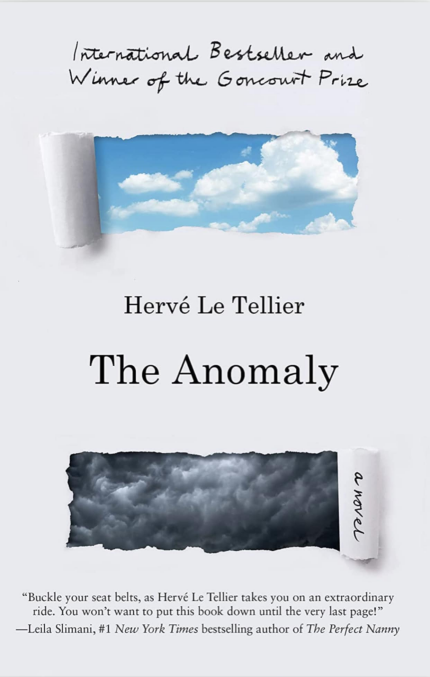The Anomaly, by Hervé Le Tellier

The Anomaly by Hervé Le Tellier
My rating: 2 of 5 stars
With “The Anomaly” by Hervé Le Tellier delivers a work that reminded me of a gloss over large parts, but which “goes beyond” this genre in terms of scope. Now this could be something good; a novelty or, sorry, an anomaly.
Unfortunately, this is not the case here, because “The Anomaly” is only quantitatively such an anomaly – but not at all qualitatively.
The premise is interesting: a plane with over two hundred people on board gets into an emergency, survives it, but is duplicated by the titular anomaly. Henceforth, all the people on board exist several times over.
What the author has to tell could be interesting as an essay, as a short story, as a thought experiment based on, for example, one person. A longer narrative form would also be conceivable, as this would offer the opportunity to examine the philosophical and ethical aspects of the story told more closely.
However, in view of the many characters we accompany in this novel, the respective story of individuals (e.g. that of the cancer-stricken pilot or the abused child) gets lost in the arbitrariness of diversity. In this way, a real closeness to even one of the characters cannot arise.
At the same time, however, this diversity also has the opposite effect: because of the fragmentation of the overall narrative into many small sections, there is only a minimal frame story; the various theories on the origin of the anomaly are not thought through to the end and although a (unsatisfactory) resolution is achieved with the literally last sentence, this resolution remains hollow and without any real gain in knowledge.
In my opinion, an open ending – without deliberateness and a “bang effect” brought about by brute force – would have been more interesting here.
The last quarter, in which some tangible emotions finally become visible, in which Le Tellier actually succeeds in bringing some authenticity into his otherwise rather “artificial” novel, both linguistically and in terms of content, reconciles a little with the rest of the book, but this is undone first by a radical act on the part of a character and shortly afterwards by one of the same on the part of the author – a pity!
For me, “The Anomaly” is a monument of wasted opportunities – the author doesn’t really know how to create something out of a good beginning. His characters remain pale and – in many ways – unreal and woodcut-like.
Some characters, e.g. the US president, are portrayed as caricatures of themselves and are thus less reminiscent of their real-life role models (in the aforementioned example, it is an extremely clumsily “disguised” Trump), but rather of the simplest slapstick.
In the end, I am left disappointed: the author does not convince me in the personal aspects of the characters and “the big picture” sinks into the arbitrariness of possibilities.
Two out of five stars.